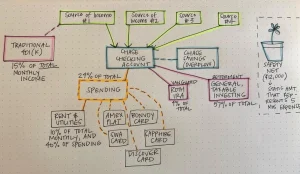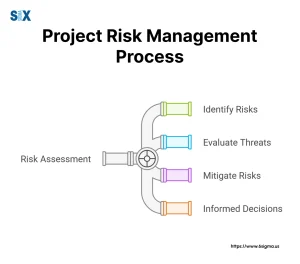
Dependent upon your risk tolerance and retirement savings amount, adding emerging markets may be worth exploring as an asset class in your portfolio. A diversified ETF that automatically rebalances may provide an efficient means of adding the asset class.
These markets can offer long-term economic gains by producing faster economic expansion compared to slower-growing rich nations; however, they do pose certain key risks.
Economic Growth
Economic expansion is one of the primary draws to emerging markets for investors. Emerging countries typically exhibit rapid economic expansion rates, leading to high returns on investments as their economies develop and mature. China, for instance, has emerged as an economic powerhouse over recent years while Brazil, Russia, and India – commonly referred to as BRIC nations – also saw exponential economic expansion rates. Meanwhile other nations in Southeast Asia, Africa, and Latin America boast large populations with growing purchasing power.
Many emerging markets boast abundant natural resources that can produce significant investment returns as demand for these materials increases. Furthermore, many of these markets boast rapidly growing consumer populations that provide significant opportunities for companies offering products or services catering specifically to these populations.
Though emerging markets offer high returns, their success does not come without risk. Political instability could stall economic development and reduce returns. Furthermore, these markets may be vulnerable to fluctuations in interest rates or commodity prices that could alter returns even further.
Due to these risks, when investing in emerging markets it is vitally important to conduct thorough research and closely track currency fluctuations. Furthermore, investors should diversify their exposure by investing in multiple securities, industries, and geographic regions.
Political Stability
Emerging markets represent a vast, heterogeneous universe of economies and markets with varying political conditions and histories of instability that threaten growth prospects and investment returns.
Emerging markets provide investors with opportunities to join industry expansion at its inception and potentially experience higher rates of return. Furthermore, many emerging markets feature currencies less closely aligned with those found in developed nations; therefore adding diversification benefits to a portfolio.
Emergence of more developed and stable middle classes could spur consumer spending that drives economic expansion. Finally, an expected peak in strength of the U.S. dollar may provide emerging market exporters an advantage as their currencies appreciate relative to it.
However, investing in emerging markets does not come without risk. Political instability can result in unpredictable government policies that can harm both businesses and investors alike. Furthermore, emerging markets typically feature less developed financial and regulatory systems which add an extra element of uncertainty for investors. Finally, investments typically made using local currencies are subject to significant fluctuations relative to the US dollar which can adversely impact investment returns while making liquidating positions difficult or impossible when necessary.
Financial Stability
Emerging markets still have some way to go before being considered developed economies, yet their rapid development rates present opportunities for investors. Emerging markets often possess abundant natural resources such as oil, gas and minerals as well as expanding populations with greater incomes and purchasing power; all factors which may lead to higher investment returns as companies develop and sell these commodities.
However, these high rates of return must be carefully evaluated against other potential risks, including political instability, economic insecurity and financial risk which could all erode investment values. Political unrest, violence and war can adversely impact business operations and investor trust while economic insecurity could result in inflation, interest rate fluctuations or debt defaults and financial risks can include weak regulatory systems, inadequate shareholder legal protections or limited liquidity in emerging markets.
Individual investors ultimately make their own decision about investing in emerging markets, and how much of their portfolio should be dedicated to these investments. A careful assessment of their chosen country, region, company(s) and risk tolerance is the best way for an investor to determine whether emerging markets are suitable.
Market Valuation
As emerging markets develop and flourish, they present companies with new market opportunities – often offering higher rates of return for investors who take advantage of them. But as with any investment decision, it’s essential to understand all associated risks before jumping in to investing in emerging markets.
Regulatory Risk: Investing in emerging markets exposes investors to regulatory risks related to less developed regulatory systems. These may include weak corporate governance practices, inadequate legal protections and regulatory changes that could threaten investments.
Financial Risk: Emerging markets can be vulnerable to economic shocks that have an immense effect on businesses and economies as a whole. Examples of such shocks could include inflation, interest rate fluctuations or debt default.
Emerging market investments often occur in local currency, creating exposure to currency fluctuations that investors should monitor closely and hedge. Political instability also poses a threat, affecting businesses and economic outlook in many ways. Corruption remains an issue in emerging countries; be it through bribery, kickbacks or cronyism granting certain companies unfair advantages over others. By understanding both opportunities and risks when investing in emerging markets, investors can make well-informed decisions when adding emerging market equities to their portfolio.







